Have you ever dreamed about resting your head on a fluffy light pillow made of sheep wool? Well farmer Michael Burke did. He took inspiration from time spent shearing sheep on his family farm in Dunblaney, county Galway to set up Woolow. Michael’s father took some wool from the sheep that Michael had sheared and made a pillow out of it.
“He created a wool pillow for me that gave me many years of sound sleep. My dad and past generations would have understood the benefits of wool, being a natural fibre that has been used for many years in the past as a sleep product.”
Background
Michael studied agricultural science and chemistry after school and spent over 25 years working in the healthcare sector, with Elan Corporation and Alkermes Pharma Ireland in Athlone where he developed medication for patients.
In 2015, Michael relocated back to the home farm in Galway and converted it to organic production with a mixed flock of breeding sheep, an Aubrac suckler herd and he grows and supplies organic oats to Flahavan’s in Waterford.
“My challenge was to marry my experience in the healthcare sector with what I do now in organic farming.
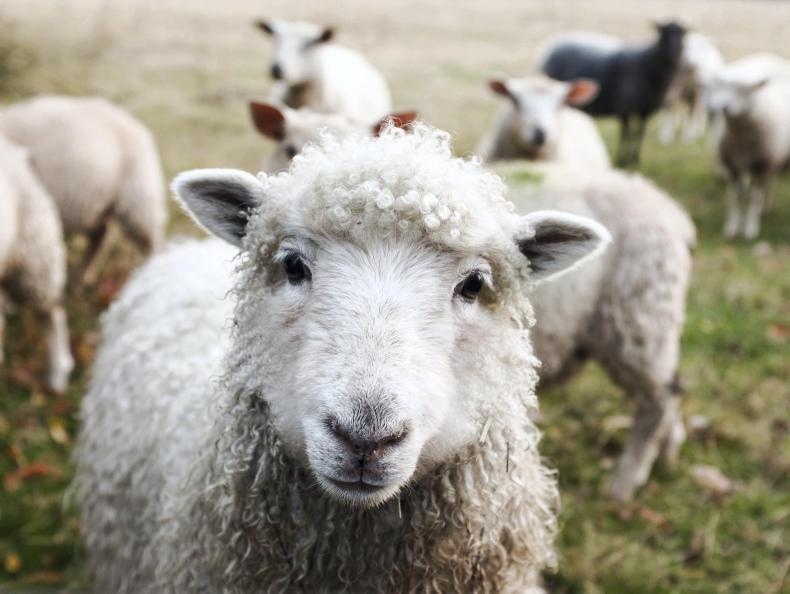
“I was always passionate about farming. I looked forward to coming back and working on the farm. It was a great opportunity to live my passion and, looking back, it’s been a great decision.”
Michael worked in the area of quality testing pharmaceuticals for human consumption before moving to the area of drug development for patients.
“Working in the healthcare sector I would have been aware of the amount of people who suffer from allergies, sinuses, asthma, respiratory difficulties – well in excess of 30%. For me, the solution was right there in front of me. The sheep’s wool.”
Woolow was launched in November 2018. Michael started with creating a wool pillow using the wool from his own sheep. Now that there is more demand, they use as much Irish wool as possible.
“My concern was that I can manufacture these on a small scale on the farm but how can I scale this profit up and develop a team to drive this to a global audience?”
Wool
The wool industry is no longer prominent in Ireland and the majority of Irish wool is shipped off to England or to China to be processed. The wool for Woolow goes to Bradford, England.
Michael is enthusiastic that there is a future for wool in Ireland.
“A cohort of people are working together to re-invigorate the wool industry again, and hopefully at some stage it will.”
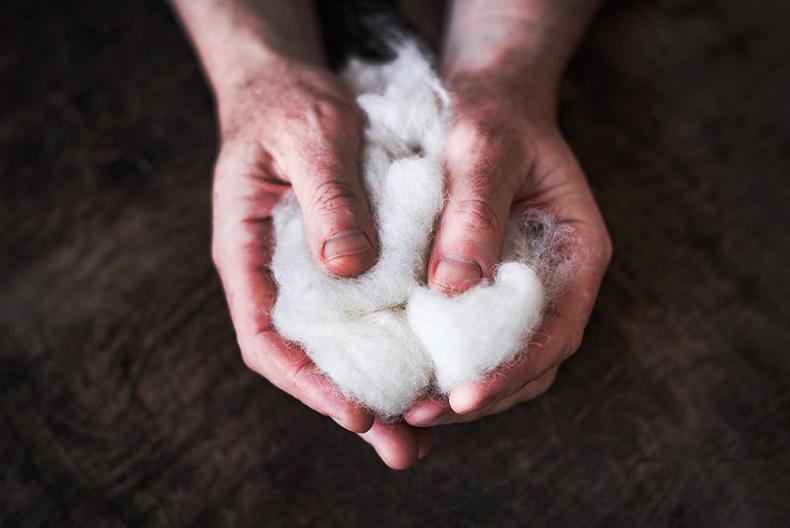
The wool from the Galway sheep is considered ideal for creating bedding products. \ Julia Dunin Photography
The main cost associated with creating wool bedding is the cleaning and the de-dusting of the wool to ensure that it is to the standards set by Michael.
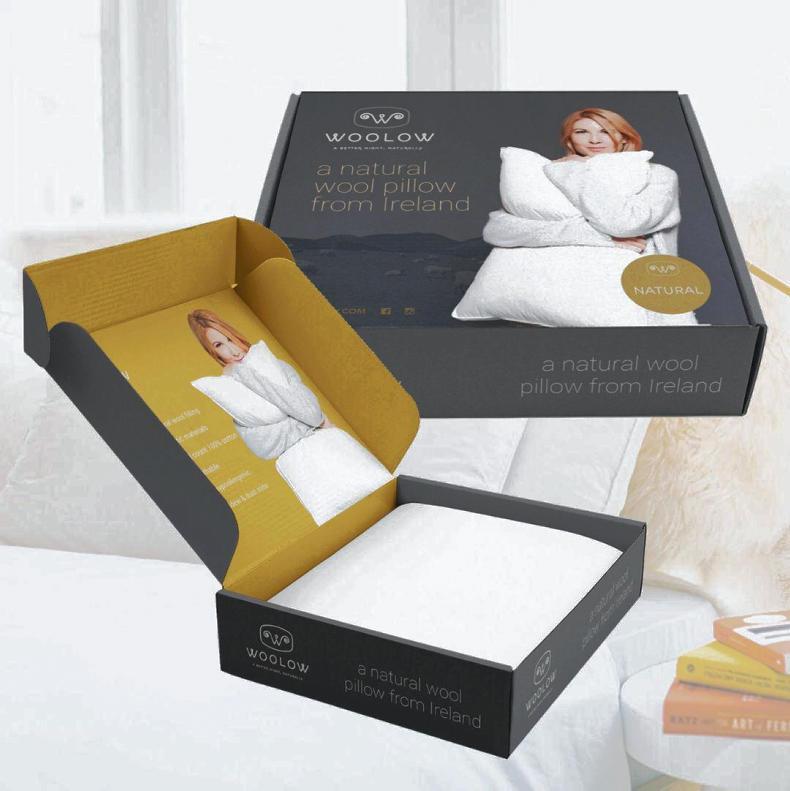
Particle sizes in wool vary in size between breeds. Wool from Irish sheep is ideal for knitting and wool jumpers. While New Zealand wool has a very fine fibre and is ideal for fine wool products.
“It’s important for the wool in wool bedding to have a thick particle size so it facilitates a bounce effect that when you rest your head on the pillow, it recoils.”
Would you think a certain breed might be better than the rest?
“Funnily enough, coming from Galway, the wool from the Galway sheep would be considered ideal for creating bedding products.”
Bricks and clicks
At the moment, Woolow products can only be purchased on the Woolow website or at trade shows.
“One thing I would have learned from the experience of trade shows is that customers like to use their senses. They like to look at it, to touch it, to smell it, to squeeze it and you cannot do that on the internet. It’s very important to have a retail space where the customers can go and view it, to have that engagement with it but still they can choose to purchase it online.”
There has also been significant interest from high-end retail and high-end hotels. “It is important that it still sits in retail and that it’s also not solely online. There is space for both bricks and clicks.”
For more information see www.woolow.com
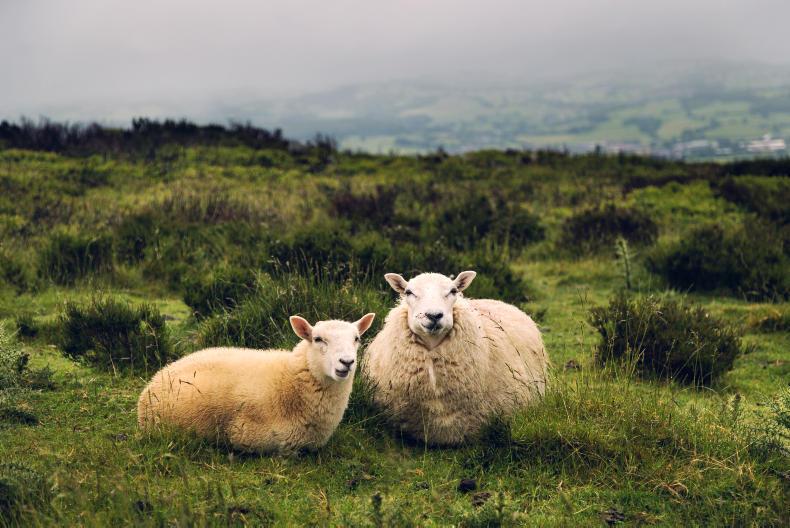
Wool is considered a sustainable product as it is renewable, biodegradable and recyclable.
According to Michael, “one of the challenges from an environmental point of view is to replace synthetic with natural fibres and wool is the obvious choice”.
Wool has numerous qualities that make it a sustainable product. It is renewable, biodegradable and recyclable.
Sheep are part of the natural carbon cycle. CO2 is naturally part of the atmosphere and a big contributor to climate change. Sheep consume organic carbon stored in plants and convert it to wool, with 50% of the weight of wool being organic carbon. They are shorn every 12 months, growing a new fleece each year without depleting finite natural resources, making it renewable. A product made with wool is storing the organic carbon and is 100% biodegradable.
In the healthcare sector, the dust mite is seen as a significant contributor to allergies and sinuses.
“The beauty about wool is that it’s natural, hypoallergenic, repels moisture, prevents the growth of allergens like bacteria and the bristles on the wool repels dust mites,” says Michael.
Read more
My Country Living: 'I'm a long way from banking now'
My Country Living: 'Can you ever really have enough sheep?'
Have you ever dreamed about resting your head on a fluffy light pillow made of sheep wool? Well farmer Michael Burke did. He took inspiration from time spent shearing sheep on his family farm in Dunblaney, county Galway to set up Woolow. Michael’s father took some wool from the sheep that Michael had sheared and made a pillow out of it.
“He created a wool pillow for me that gave me many years of sound sleep. My dad and past generations would have understood the benefits of wool, being a natural fibre that has been used for many years in the past as a sleep product.”
Background
Michael studied agricultural science and chemistry after school and spent over 25 years working in the healthcare sector, with Elan Corporation and Alkermes Pharma Ireland in Athlone where he developed medication for patients.
In 2015, Michael relocated back to the home farm in Galway and converted it to organic production with a mixed flock of breeding sheep, an Aubrac suckler herd and he grows and supplies organic oats to Flahavan’s in Waterford.
“My challenge was to marry my experience in the healthcare sector with what I do now in organic farming.

“I was always passionate about farming. I looked forward to coming back and working on the farm. It was a great opportunity to live my passion and, looking back, it’s been a great decision.”
Michael worked in the area of quality testing pharmaceuticals for human consumption before moving to the area of drug development for patients.
“Working in the healthcare sector I would have been aware of the amount of people who suffer from allergies, sinuses, asthma, respiratory difficulties – well in excess of 30%. For me, the solution was right there in front of me. The sheep’s wool.”
Woolow was launched in November 2018. Michael started with creating a wool pillow using the wool from his own sheep. Now that there is more demand, they use as much Irish wool as possible.
“My concern was that I can manufacture these on a small scale on the farm but how can I scale this profit up and develop a team to drive this to a global audience?”
Wool
The wool industry is no longer prominent in Ireland and the majority of Irish wool is shipped off to England or to China to be processed. The wool for Woolow goes to Bradford, England.
Michael is enthusiastic that there is a future for wool in Ireland.
“A cohort of people are working together to re-invigorate the wool industry again, and hopefully at some stage it will.”

The wool from the Galway sheep is considered ideal for creating bedding products. \ Julia Dunin Photography
The main cost associated with creating wool bedding is the cleaning and the de-dusting of the wool to ensure that it is to the standards set by Michael.

Particle sizes in wool vary in size between breeds. Wool from Irish sheep is ideal for knitting and wool jumpers. While New Zealand wool has a very fine fibre and is ideal for fine wool products.
“It’s important for the wool in wool bedding to have a thick particle size so it facilitates a bounce effect that when you rest your head on the pillow, it recoils.”
Would you think a certain breed might be better than the rest?
“Funnily enough, coming from Galway, the wool from the Galway sheep would be considered ideal for creating bedding products.”
Bricks and clicks
At the moment, Woolow products can only be purchased on the Woolow website or at trade shows.
“One thing I would have learned from the experience of trade shows is that customers like to use their senses. They like to look at it, to touch it, to smell it, to squeeze it and you cannot do that on the internet. It’s very important to have a retail space where the customers can go and view it, to have that engagement with it but still they can choose to purchase it online.”
There has also been significant interest from high-end retail and high-end hotels. “It is important that it still sits in retail and that it’s also not solely online. There is space for both bricks and clicks.”
For more information see www.woolow.com

Wool is considered a sustainable product as it is renewable, biodegradable and recyclable.
According to Michael, “one of the challenges from an environmental point of view is to replace synthetic with natural fibres and wool is the obvious choice”.
Wool has numerous qualities that make it a sustainable product. It is renewable, biodegradable and recyclable.
Sheep are part of the natural carbon cycle. CO2 is naturally part of the atmosphere and a big contributor to climate change. Sheep consume organic carbon stored in plants and convert it to wool, with 50% of the weight of wool being organic carbon. They are shorn every 12 months, growing a new fleece each year without depleting finite natural resources, making it renewable. A product made with wool is storing the organic carbon and is 100% biodegradable.
In the healthcare sector, the dust mite is seen as a significant contributor to allergies and sinuses.
“The beauty about wool is that it’s natural, hypoallergenic, repels moisture, prevents the growth of allergens like bacteria and the bristles on the wool repels dust mites,” says Michael.
Read more
My Country Living: 'I'm a long way from banking now'
My Country Living: 'Can you ever really have enough sheep?'









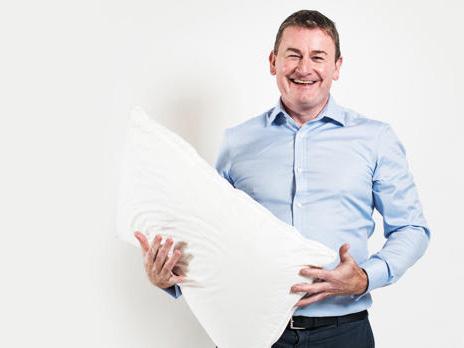
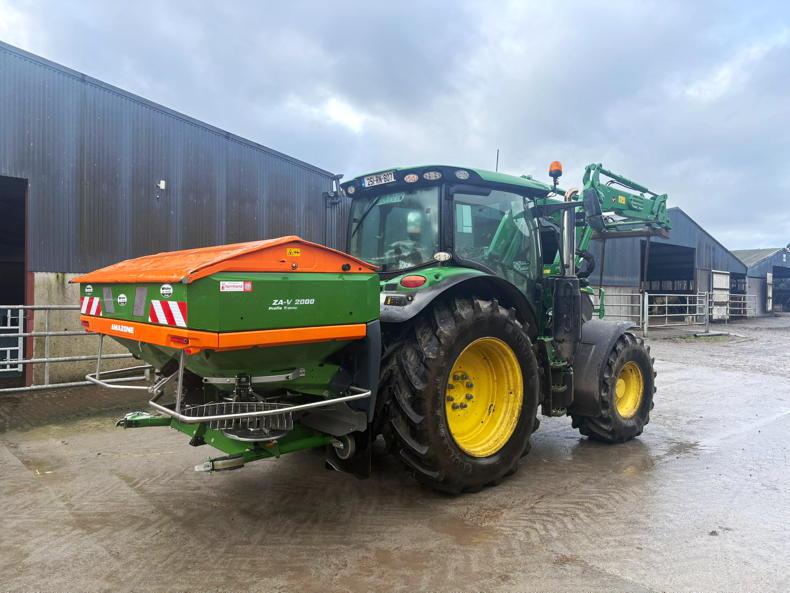
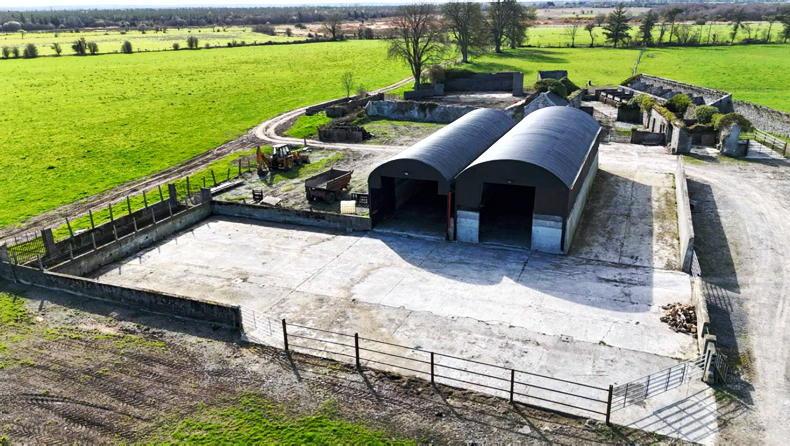
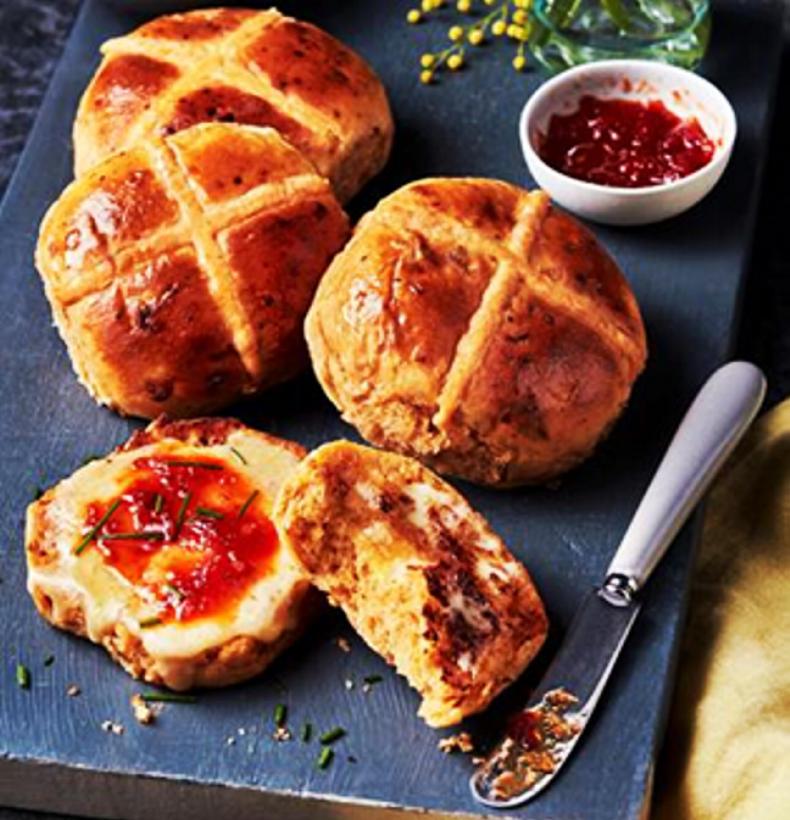

SHARING OPTIONS